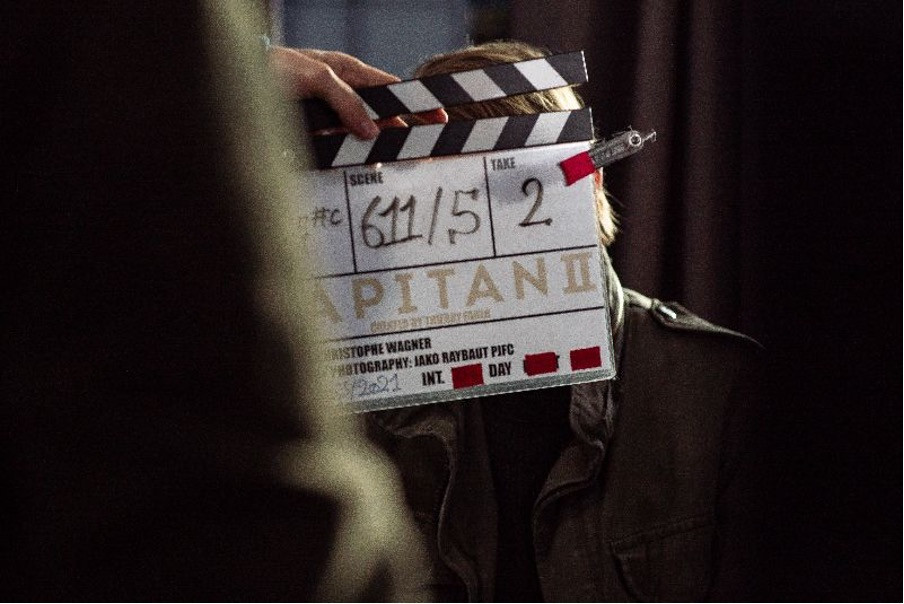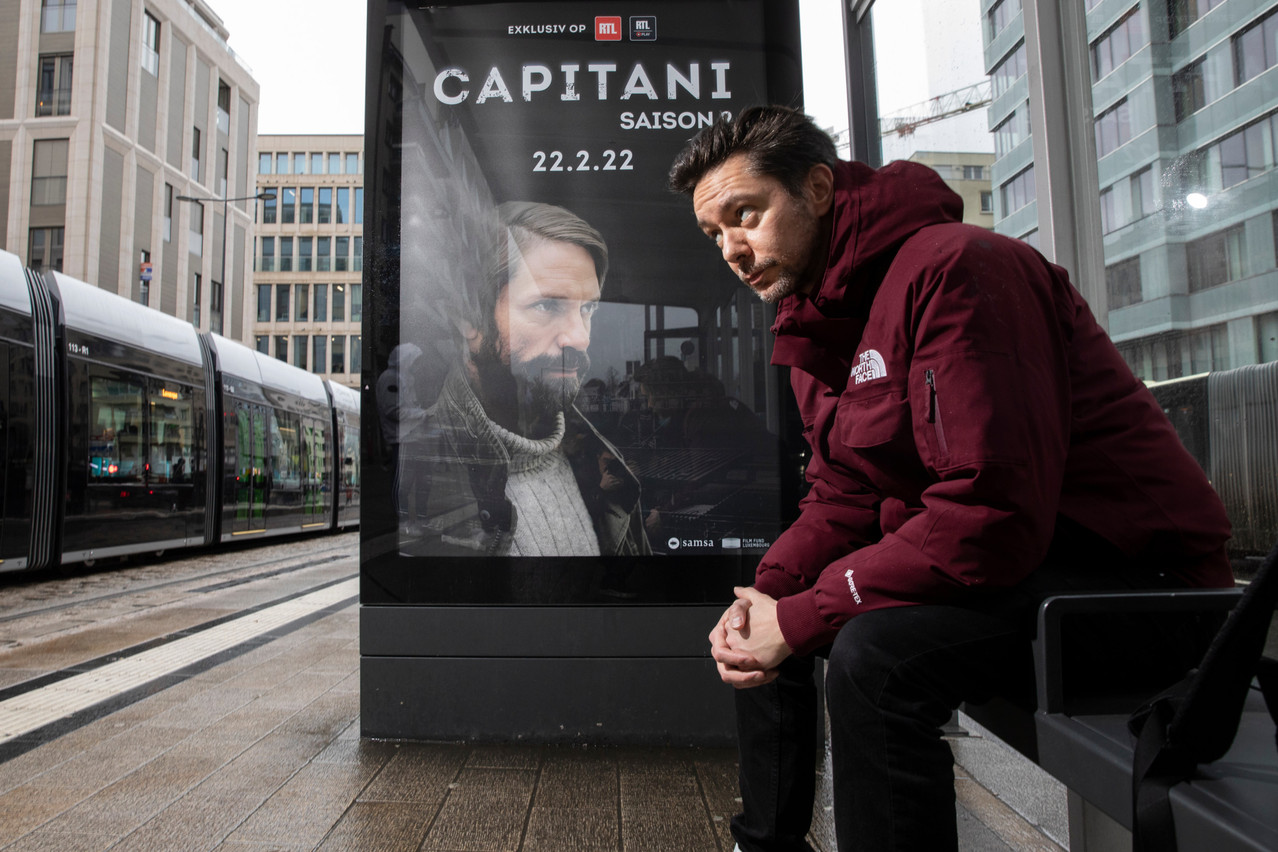How does it feel to be just a few days away from the release of season 2?
Thierry Faber: Until the beginning of the week, I would have said very good. But now, with the appearance of the posters on the bus shelters and the media coverage, the pressure is mounting... The script of this second part was already completed when, almost a year ago to the day, Capitani was released on Netflix. We were then a month away from shooting.
I must admit that the rapid success on this platform was a bit disturbing. A mixture of incomprehension, joy and a little perplexity. But in any case, we didn't change a comma from what we had planned.
Will it be complicated to repeat the same success? Season 1 had also exploded the figures on RTL...
I'd like to answer: of course! It’s simple: to do better just seems impossible. To repeat the same success would be incredible. It would mean that we have managed to bring on board a second time the majority of those who loved the first season, while also capturing some new viewers.
Are you afraid?
Let’s just say I wouldn’t want the audience to be disappointed. With social networks, the verdict will fall quickly... Having written it, I know that this second season is very different, darker, more urban too, and that some viewers will need time to adapt. On that level, what is positive is that RTL will broadcast two episodes per evening, instead of one like in the inaugural season. With a story that is once again complex, this is important. Instead of 26 minutes, the audience will have a short hour each week to get into this sequel ... which is not completely a sequel. Since the action takes place three years after the end of season 1.
To repeat the same success would be incredible.
And how was this second part conceived?
The first one was planned as a “one shot”, it was enough on its own. So the initial question was: how to continue? Even if there were maybe two or three small threads left to pull on, the story of the first season was complete. And then, given what we learned about the “hero”, Captain Luc Capitani, it was hard to imagine him not going to prison.
So we started from there. And we had a choice: either someone managed to save him from this sentence, or someone had to get him out of his cell and back into the field. Given the psychology of Luc Capitani’s character, the first option bothered me. He’s someone who needs to atone for what he did.
And so you made him an infiltrator in the mafia milieu...
When you write a script, research is important. Here, I exchanged with police officers. I found out how infiltrations are carried out in our country. With this question in mind: how can you infiltrate in such a small country where everyone knows everyone else? I had my answer and it is in the series. It’s simple, you call on people from abroad. No Luxembourger would ever go undercover. And that’s precisely what we played on, taking advantage of the fact that it’s common knowledge in the series that Capitani was in prison and is a murderer. Which is the ideal cover for offering his services in the underworld.

"Having written it, I know that this second season is very different, darker, more urban, and that some viewers will need time to adapt," says Thierry Faber. Photo: Samsa Film
An “underworld” which you locate in the station district of Luxembourg...
We didn’t want to move Capitani from one village to another. So we thought of taking him “home”. In season 1, they say he’s “a guy from the south”. Esch or Dudelange were mentioned. But we soon realised that this was not the ideal setting for what we wanted to do. I have always found the worlds of drugs and prostitution very interesting from a cinematic point of view.
Of course, a town like Esch is affected by these problems, but after talking to people from the criminal investigation department, it turned out that it had nothing in common with what you find in the capital and the station area. This is where the crime rate is highest in terms of drugs and especially prostitution. Street prostitution, for example, only exists there. After that, there is a third universe that mixes with these two in reality but which we did not want to touch: the illegal sale of arms.
You wanted this series to be as realistic as possible?
I didn’t interview dealers, drug addicts or prostitutes. But I went as far as I could, for example to meet an association such as DropIn, the Luxembourg clinic for sex workers and drug addicts. But also its Belgian counterpart in Arlon, Espace P. I gathered valuable information there. Of course, it’s all cinema and sometimes we take shortcuts to make it easier for the viewer to understand. But the way the environment works, where these people come from, how they try to survive, etc., all this is taken from reality. We also went to Belgium to shoot in a town called Athus, which is specifically identified in the series and which is still considered a hub for drugs and prostitution.
Was the budget for this second season bigger?
We went from €2.6m to €3.5m. The Film Fund Luxembourg has given us the maximum possible allocation. RTL and the Belgian production company Artémis Productions have added to this.
How complicated is it to set up a series in Luxembourg?
I am not a producer and I can only speak about what I have seen and know. But what is certain is that everything starts with a request from RTL...
Why?
As you know, in Luxembourg there is only one window where the film industry can get financing: the Film Fund. If a producer comes with a film project, we know that it will be released in the cinema if it is realised. But if you come with a series, they ask you directly who your broadcaster is. And if you don’t have one, they tell you to look for one and come back later. Since RTL is the only channel in our country capable of ordering a series, everything goes through it.
It's easy to understand why we see so few series productions in Luxembourg...
In six years, RTL has made two calls for projects, the second of which ended a few days ago. So, yes, it’s not easy.
After that, the Holy Grail would be to find a second channel (abroad) or a platform that would invest. This would enable us to move to the next level. But if we stay on a Luxembourg scale, with the budgets available, I think we have reached a glass ceiling with this second season of Capitani. To do anything more ambitious seems impossible to me. We are shooting for 60 days for just under six hours of programming. That's the equivalent of a film made in 20 days for a budget of €1.2m. In other words, nothing at all...
What about a third season of "Capitani"?
At the moment, we’re not talking about it. And I’m not working on it. So there will be nothing in the short term, that is to say in the next two years. I’m not saying it will never come, but for the moment I need something else.
With the budgets available, I think we have reached a glass ceiling
So what are you going to do now?
It can sometimes be complicated to understand, but with all the work that was going on, it’s only been two weeks since season 2 was finished for me. But having spoken with the actor Luc Schiltz (who plays Luc Capitani), it’s been eight months since he finished. So I need a little rest. Then I'll get back to work. You have to know that this is a job where you don’t always do what you want. But rather what you are allowed to do. There are people you have to convince. What we’ll see from Tuesday onwards on RTL represents two years of work. So you also have to ask yourself if you are ready to invest two years of your life in a project again. And start again in a phase where you know that the financial returns will be lower.
What do you mean?
With this series, I’m coming out of a period where I was well paid. But now, as an independent, all the new projects I’m going to start up again, I’m going to do it for free. And for a period of several months. And that’s without knowing if they’ll come to anything. So, you understand that I have a vested interest in having several projects, several horses in the race. And that at this stage, I don’t throw myself 100% into a particular project. That would be suicidal.
Didn’t the success of season 1 on Netflix around the world open some doors for you abroad?
No. It didn’t change anything. For me, as for the others. My phone didn’t ring any more. The only door that has really opened is in Luxembourg. Because now we’ve proved that we can do a series like Capitani. We have shown that we can do it.
This story was first published in French on Paperjam. It has been translated and edited for Delano.


